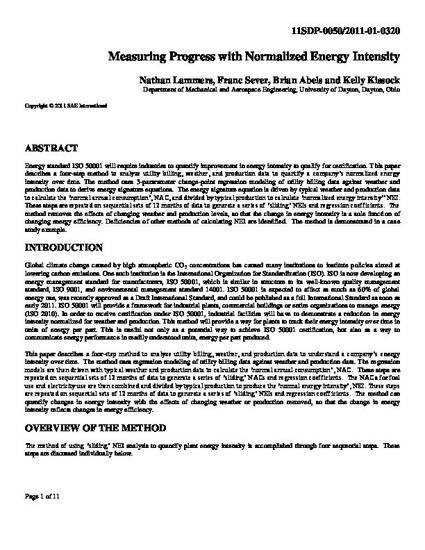
Energy standard ISO 50001 will require industries to quantify improvement in energy intensity to qualify for certification. This paper describes a four-step method to analyze utility billing, weather, and production data to quantify a company's normalized energy intensity over time. The method uses 3-pararameter change-point regression modeling of utility billing data against weather and production data to derive energy signature equations. The energy signature equation is driven by typical weather and production data to calculate the 'normal annual consumption', NAC, and divided by typical production to calculate 'normalized energy intensity' NEI. These steps are repeated on sequential sets of 12 months of data to generate a series of 'sliding' NEIs and regression coefficients. The method removes the effects of changing weather and production levels, so that the change in energy intensity is a sole function of changing energy efficiency. Deficiencies of other methods of calculating NEI are identified. The method is demonstrated in a case study example.
Available at: http://works.bepress.com/j-kissock/31/

This document is provided for download by permission of the publisher. Permission documentation is on file.